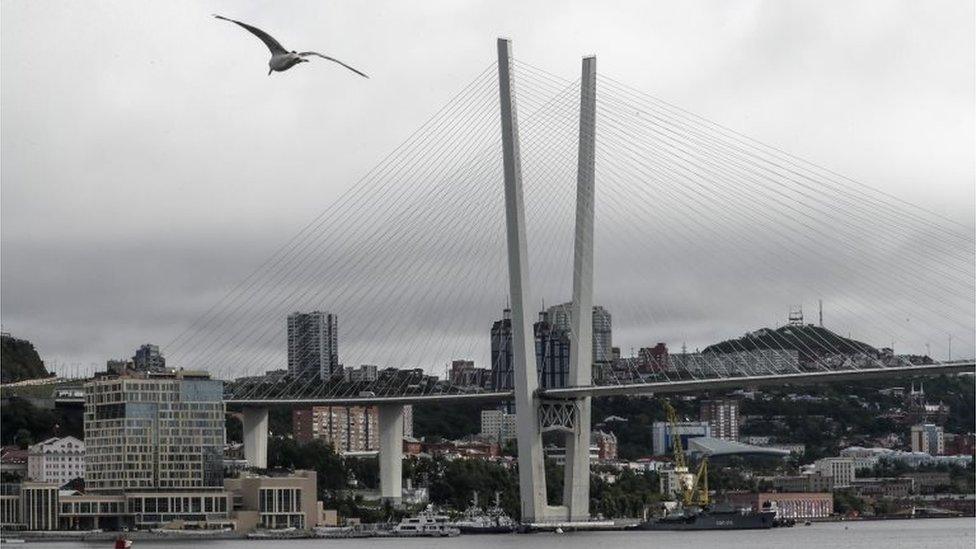Ukraine war round-up: Disputed referendums and gas leak allegations
- Published
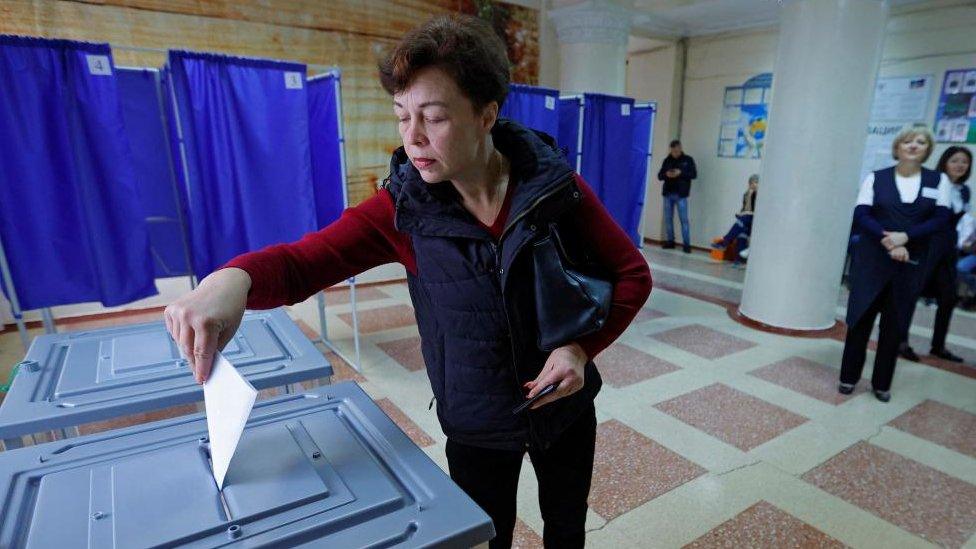
A voter in Donetsk on Tuesday casts her ballot during the referendum
Voting in four disputed referendums in Russian-held parts of Ukraine ended on Tuesday, as indications grew that Moscow intended to use the exercise as grounds to annex more territory.
The votes in Donetsk, Luhansk, Kherson and Zaporizhzhia were denounced as a sham by Ukraine's government and its Western allies, who regard them as stage-managed by the Kremlin.
But Russian President Vladimir Putin defended the referendums, saying they were designed to stop the persecution of ethnic Russians and Russian-speakers by Ukraine - a charge the Ukrainian government denies.
There is speculation that Mr Putin may announce the four regions' annexation in a speech to a joint session of Russia's parliament on Friday.
Up to four million people were asked to vote in the war-torn regions, which make up about 15% of Ukraine's territory.
Refugees scattered across Russia were also able to take part at dozens of polling stations, including in annexed Crimea. Early votes from those areas were said by Russian media to show huge majorities in favour of joining Russia.
If Russia annexes the four regions, it could take the war to a new and more dangerous level, with Moscow portraying any attempt by Ukraine to regain them as an attack on its sovereign territory.
Our Kyiv correspondent James Waterhouse says the outcome will be of little surprise to anyone - find out why here.

Military enlistment centre to open on Russian border with Georgia
Meanwhile, Russia said it intended to open an army enlisting centre on the border with Georgia, where massive queues have formed as Russian men try to flee the country to avoid being sent to fight in Ukraine.
Officers at the Verkhniy Lars crossing will be tasked with serving summons to "citizens of the mobilisation age", the authorities say.
Watch: Drone video shows scale of people leaving Russia via Georgian border
Many young Russian men have sought to go into exile to evade the draft and recent satellite and drone images have shown queues going for miles from Russia.
All those crossing into Georgia look exhausted, the BBC's Rayhan Demytrie says, adding that they are hungry and sleep deprived - but relieved to have reached safety.
Long queues have also been reported on Russia's border crossings with Mongolia and Kazakhstan.

Ukraine blames Russia for Nord Stream pipeline leaks
Elsewhere, the economic tussle between Russia and Europe continued to prompt fears of a new "cold war" this winter.
Energy prices have soared since Moscow invaded Ukraine and scarce supplies could push up costs even further.
That means there are growing concerns that families in the EU will be unable to afford the cost of heating this winter.
The EU has previously accused Moscow of using a reduction in gas supplies as an economic weapon, in response to European sanctions imposed because of Russia's invasion of Ukraine.
Watch: Footage from the Denmark's Defence Command of what it says is a gas leak from the pipelines
Those allegations have been given new impetus by mysterious leaks in two major gas pipelines to Europe, which came to light on Monday.
Now Ukraine has accused Russia of deliberately causing those leaks in what it described as a "terrorist attack".
Ukrainian presidential adviser Mykhaylo Podolyak said the damage to Nord Stream 1 and 2 in the Baltic Sea was "an act of aggression" towards the EU.
For its part, Russia denies weaponising its gas and has said it is "extremely concerned" about the leaks.
However, seismologists reported underwater blasts before the leaks emerged.

Russia 'blindfolded and restrained' Japan consul
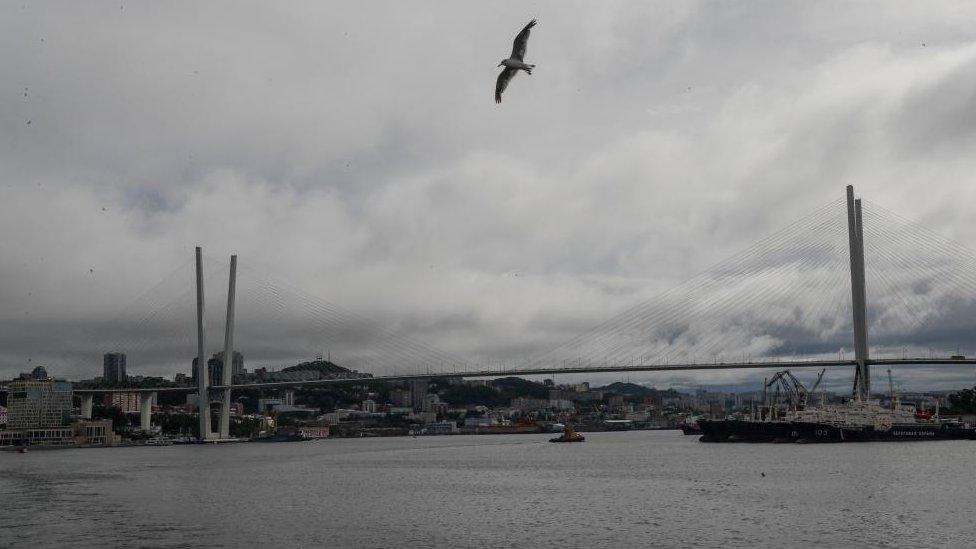
The diplomat at the centre of the row worked at the Japanese consulate in Vladivostok
Japan has accused Russia's security services of blindfolding and restraining one of its diplomats in the eastern city of Vladivostok.
Motoki Tatsunori, its consul in the city, was freed from custody on Tuesday after being accused of espionage - and given 48 hours to leave Russia.
Moscow alleges he received secret information about its co-operation with an unnamed Asian country.
"A Japanese diplomat was detained red-handed while receiving classified information, in exchange for money, about Russia's co-operation with another country in the Asia-Pacific region," Russia's FSB security service said in a statement.
Japan denied the allegation and said the detention of its consul for political affairs violated the Vienna Convention on Diplomatic Relations and had been carried out in "an intimidating manner".
It is demanding a formal apology and has confirmed that the diplomat would leave Russia by Wednesday after being declared persona non grata.

- Published27 September 2022
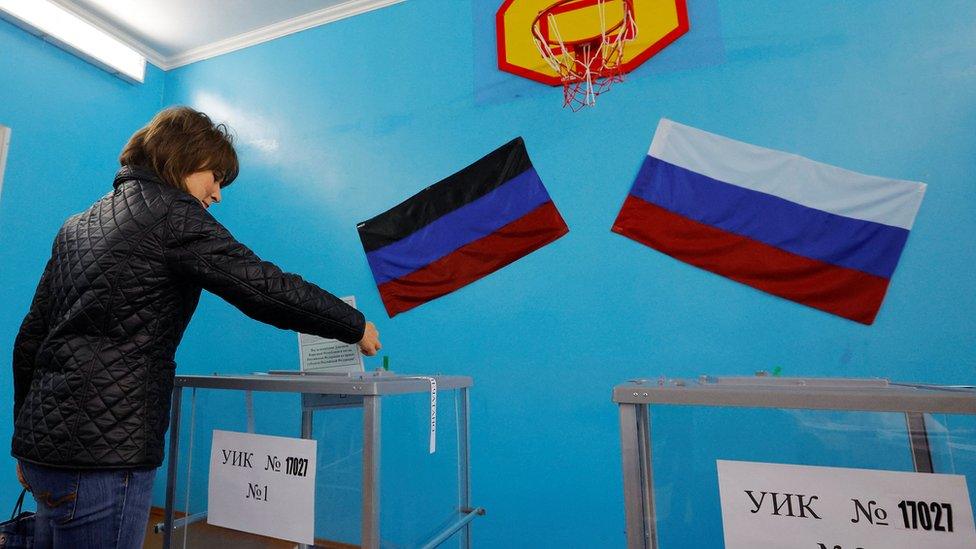
- Published27 September 2022
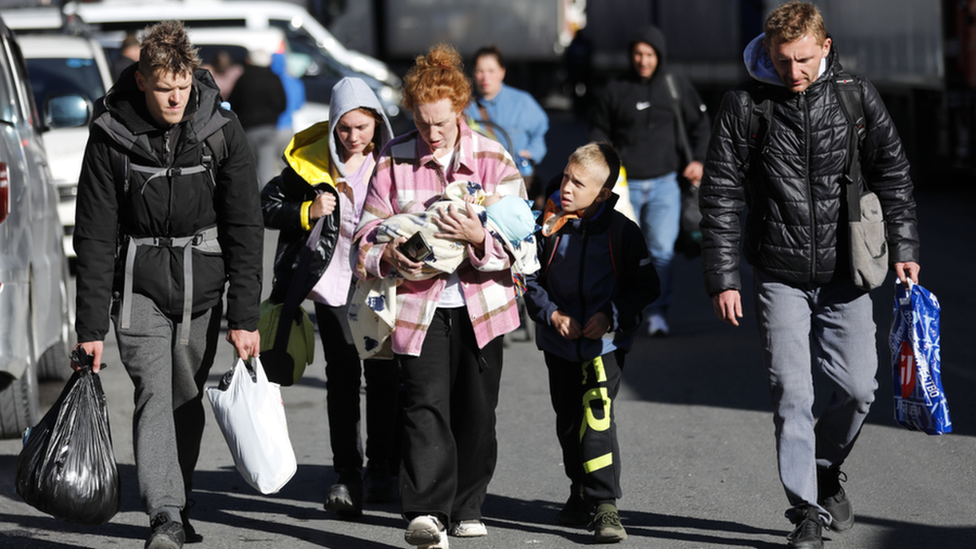
- Published27 September 2022
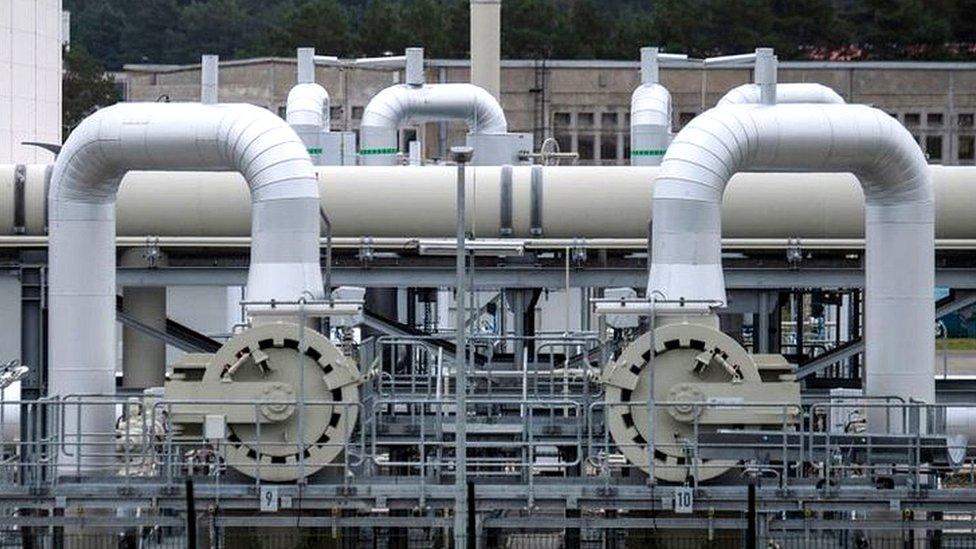
- Published27 September 2022
